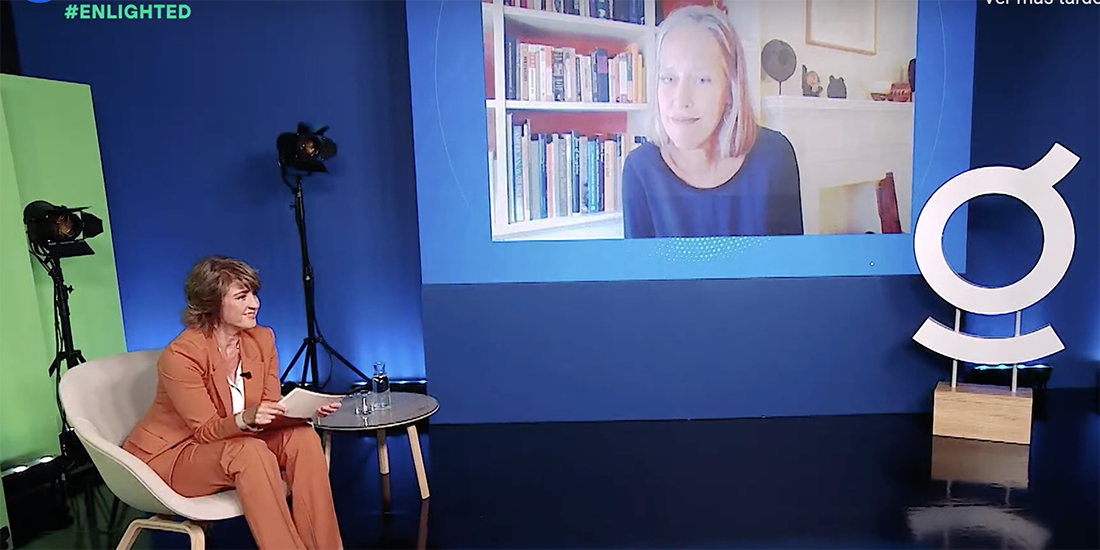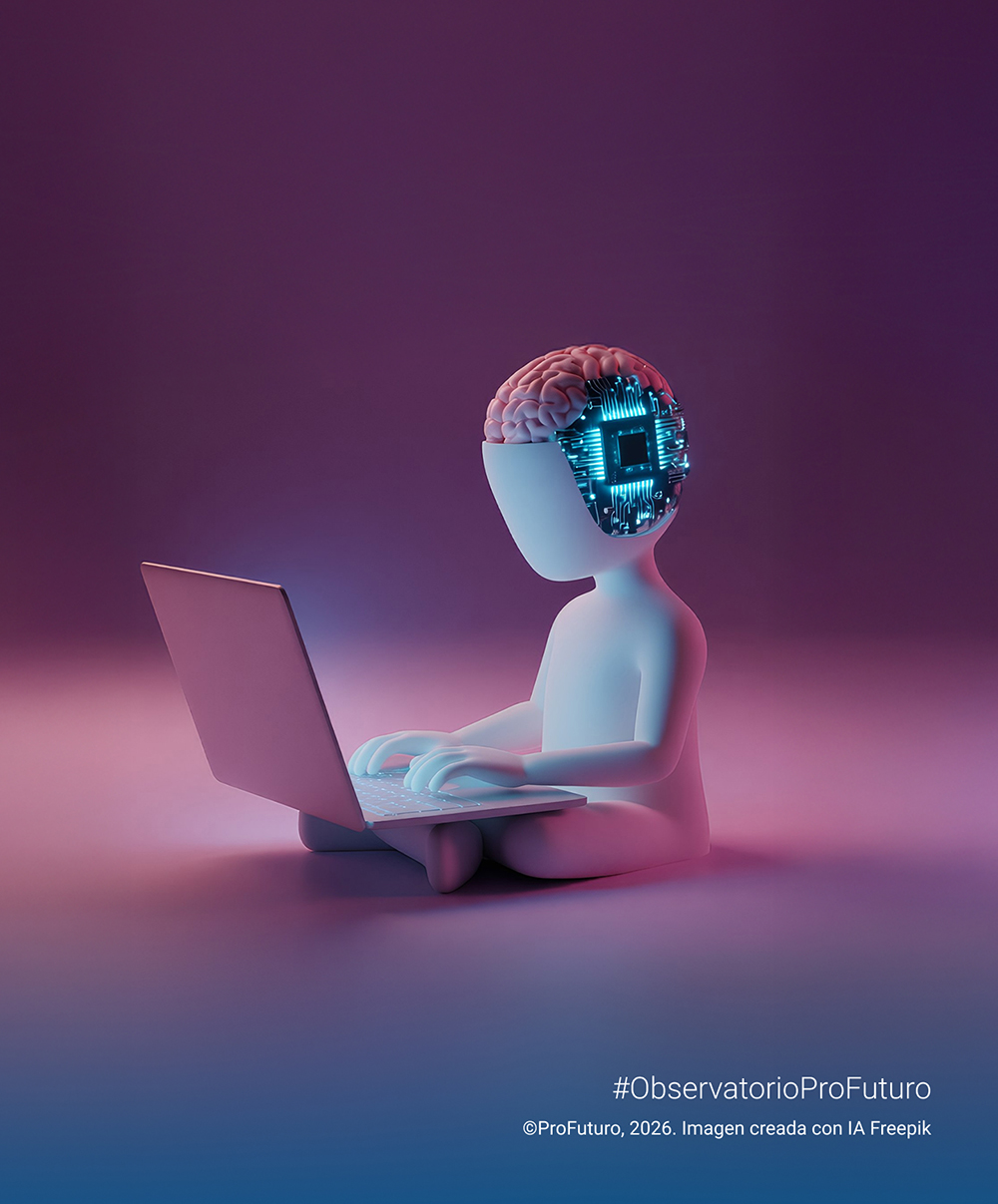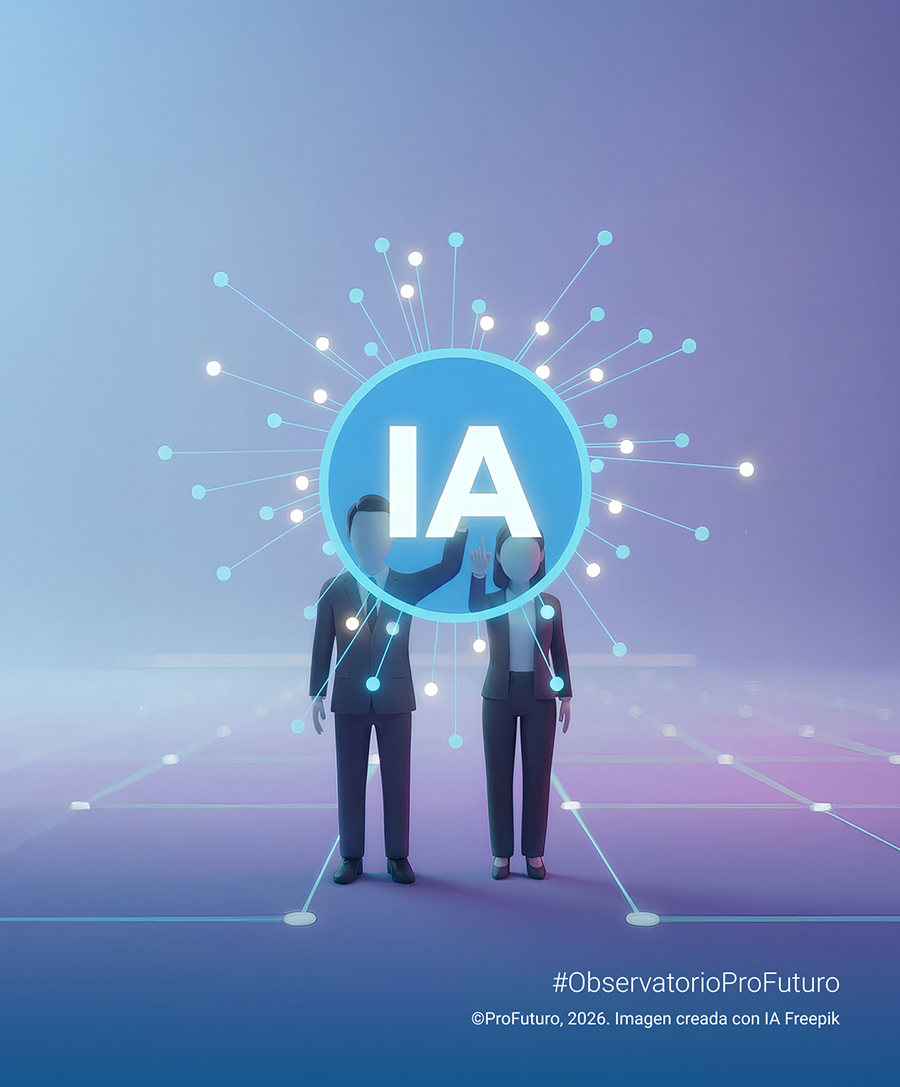Profuturo and Teach for All share a large number of basic approaches to education, but perhaps the most significant of them all is the belief of the two organisations in the role of the teacher as a fundamental element in achieving significant changes in the quality of education. This essential precept lays the foundations for a partnership that takes the form of training, support and career development for thousands of teachers in Africa.
Upon the basis of the “EdTech revolution”, this partnership seeks to train teachers in didactic and pedagogical skills, social leadership and digital competences, making them agents of change in their respective educational communities. The teachers can thus lead a cascade of teacher training at their schools, creating a long-term impact on the lives of thousands of children through education. The conversation between Kopp and Brier, the main conclusions of which are summarised in this article, revolved around these common goals and approaches and the far-reaching experience of both institutions in practice and on the ground.
“Technology is the easy bit”
“Perhaps, before the pandemic, we underestimated the power of technology to accelerate learning and make it more accessible. Now we’re seeing its full potential; it allows for differentiated learning in keeping with the needs of each student and ensures that everyone has constant access to learning”. With these words Kopp emphasised the major role that technology can play when it comes to improving access to education and accelerating and enhancing learning.
However, the above won’t happen if the teacher isn’t prepared to apply and use this technology: “I’ve been able to talk to lots of teachers in our network who are using technology to keep their students learning, as well as former programme partners who’ve led some innovations in educational technology. And they’re all quite sure about one thing: technology is the easy bit. What’s difficult is developing ourselves and the teaching profession so that we know how to make the best use of this technology and ensure the children benefit from it.
Therefore, “we have to ensure that all the teachers have the pedagogical and technological skills to help their students to develop the academic and social-emotional competences they need to get where they want to go”.
Equity, a key factor
Kopp also referred to the need to strive to achieve educational equality because, in a world with difficult challenges to be overcome, “we know that collective well-being depends on all children receiving the education, support and opportunities to develop skills that will enable them to create a better future for everyone and resolve increasingly complex problems”.
While some figures and data don’t exactly inspire optimism, Teach for All’s founder is confident, because her experience on the ground in certain communities has taught her that “if there are enough people working together to guarantee that all the children develop their potential, there will be sustained progress for them, and we want this progress to be universal. These communities show us what’s possible and tell us that we can improve the whole system together”. Enough people working together refers to“teachers, students, mothers and fathers, educational and political authorities and all the players in the school ecosystem who exercise leadership”.
Her experience has also shown her that equality is a key factor in education and that “collective well-being is greater if we focus our efforts on equity and guarantee that the children with the most difficulties receive the most support”. According to Kopp, focusing on the most vulnerable children guarantees that our innovations and work will benefit all children. In this regard, she highlighted the case of Quim Sabriá, a Spanish teacher in her network who, while working with some of the most disadvantaged children in his city, began to wonder how to use video to involve the students more. This led to the creation of EDpuzzle,, a digital platform that allows teachers to turn their favourite videos into lessons. It’s since grown steadily, as it now involves 35 million students and 600,000 teachers and uses two million videos. It operates in 150 countries. It’s clear that “focusing our efforts on the most vulnerable children will guarantee that our innovations and work will benefit all of them”.
In short, by focusing on equity, working together and harnessing the huge potential of technology we can have a major impact on our students’ learning. However, we must never lose sight of the fact that the teacher remains one of the key players in the process and that he/she must be supported and taught to make the most of technology in the classroom.
The future, in our hands
Finally, a call to action to all those involved in the world of education: “We have to understand that the future lies in our hands. The enormous possibilities that have arisen must be seized, despite the difficulties. There’s potential to harness the technology to enable the students and parents become more involved in the construction of learning and to focus appropriately on the students’ well-being and emotional development at every moment of the school day. I hope that we’ll make the most of these new possibilities to redesign the whole system so that the current and future generations have a better chance of prospering and building a better future”.
With the aim of assuming our role in the building of a better future in mind, the partnership between ProFuturo and Teach for All has trained more than 15,000 teachers in Africa and expects to reach 13,000 more in the coming year. A striking example of how, together, by forging partnerships between institutions that share complementary goals and experiences, it’s possible to progress towards achieving high-quality education for everyone.
You can watch the full interview here.






